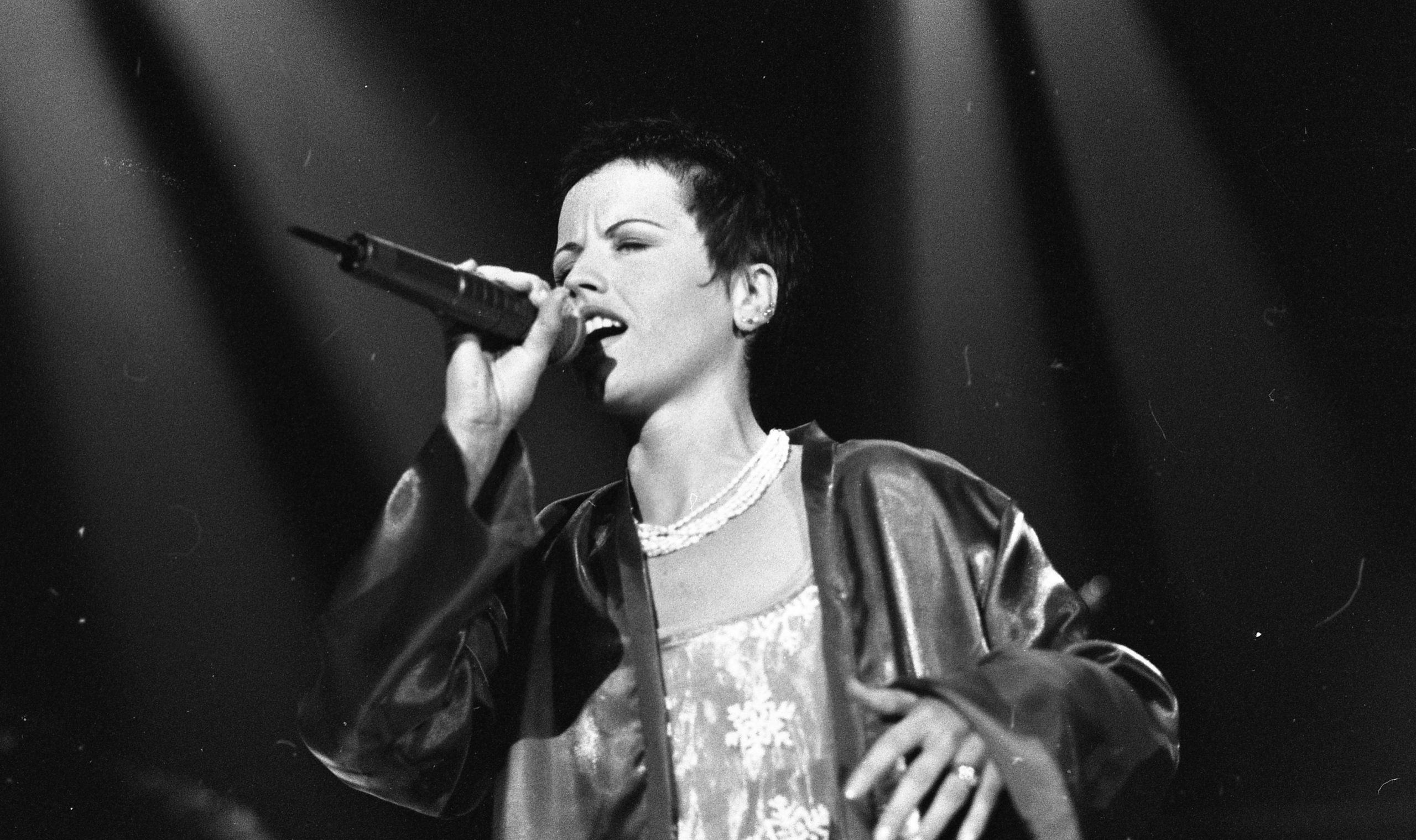The Cranberries were a more-than-competent alt-rock band who put together some good records, some great hits, and a few songs from after the fuss died down that you should know ("Schizophrenic Playboy" circa 2012 for sure, and 1999’s "You & Me" definitely). But their reason for being was Dolores O'Riordan, the frontwoman who died "suddenly" today at age 46 according to reports that have yet to publicly determine anything else. In an interview last year, she revealed she was diagnosed with bipolar disorder in 2015, and it's unfortunate to say that I immediately flashed back to contemporaries of hers like Chris Cornell and Chester Bennington, respective icons in their own right who were lost to suicide. Regardless of how we lost O'Riordan, though, it's a tragedy that her enormous, instantly recognizable voice has been silenced.
Over templates familiar to anyone entrenched in '90s music -- rippling shoegaze for "Dreams," thundering power-chord crunch for "Zombie" -- O'Riordan's clarion Gaelic trill was the constant. Her full-throated and intricately measured wail was mixed high over the reckoning chug of "Zombie" where Butch Vig-produced contemporaries led with guitars. And yet, it's pretty crazy that the Cranberries were so confident that this would work. Drizzling those effects-heavy '90s settings with dribs and drabs of birdlike harmonies and ribbons of sound swathed in Cocteau Twins reverb but amped to arena scale? And occasionally breaking into a real live yodel? It's a testament to the '90s alt-whatever explosion that a band like this was given their time to shine, and a testament to O'Riordan's profoundly creative approach to pop ballast that they were any good at it.
There really weren't that many women on modern-rock radio between the late '80s coffeehouse boom (Tracy Chapman, Edie Brickell, Suzanne Vega) and the Lilith Fair one (Sarah McLachlan, Alanis Morrisette, et al.). Revolutionary fringe-rock godmothers Liz Phair, PJ Harvey, and Bikini Kill were beloved by the press but airplay was scarce to nonexistent. For whatever reason, two of the exceptions during this period were large-lunged Irish women: Sinead O'Connor, whose enormous success was already waning by 1993 due to her controversial moments on pre-social media, and O'Riordan, who built on the daredevil vocal dynamics and loud guitars of O'Connor's "Mandinka" to deliver anthems that were just as memorable and several degrees more textured.
When O'Connor sang a multi-tiered epic like "Troy," her fancy-flicking brogue felt like it could power a colosseum with the barest of accompaniment. Even though she made two solo albums in her lifetime, O'Riordan never aspired to project anything like solitude; those albums basically sounded like the Cranberries. Her dialect was fiercely barricaded by the band. She may have been the star of "Dreams," but so was she, and she, and her too. She knew she could multiply her phrases in harmony and clever aural sculpting, which turned relatively simple and round chord progressions like "Ode To My Family" into complex waterfalls of vocalization, and yet the jangling folk guitars buffering them were clearly armored by capital-R rock.
Rock was something O'Riordan was only sparingly interested in, but she knew it was occasionally the perfect firearm for her voice to bullet out of: the ridiculous horn-crazed punk of "Salvation" and the storming arena expertise of "Promises" held their own mightily in an overwhelming male world of Toadies and Everclears. She was interested in Big Subjects, often love but occasionally politics, as on 1995's To The Faithful Departed or the war-torn "Zombie" itself, and she was confident that her ululations and reverberations could express things that the words themselves could not. She was often right; you don't have to read along with "Yeats' Grave" from 1994 to hear the palpable stirring being conveyed before it leads into the ambitious six-minute "Daffodil Lament" that Cranberries fans voted their favorite deep cut to be included on a 2002 best-of alongside proven hits.
Much of the Cranberries' debut album Everybody Else Is Doing It, So Why Can't We? trades in 4AD-style art-rock vibes whittled down into wistful folk-pop that likes its effects pedals. No matter what the band sounded like, though, O'Riordan always matched them note for note, word for word. She was always able to contain her songs, which is not something the frontperson of every huge-sounding upstart band could manage. Even when she was singing something as not-terribly-advisable as "I Just Shot John Lennon," her conviction and breathless energy sold the idea. It was a shame that someone able to convey that much self-belief in her performances struggled with the crippling doubts of depression in private. It was a joy that she got to make so much well-celebrated good music on this earth.






